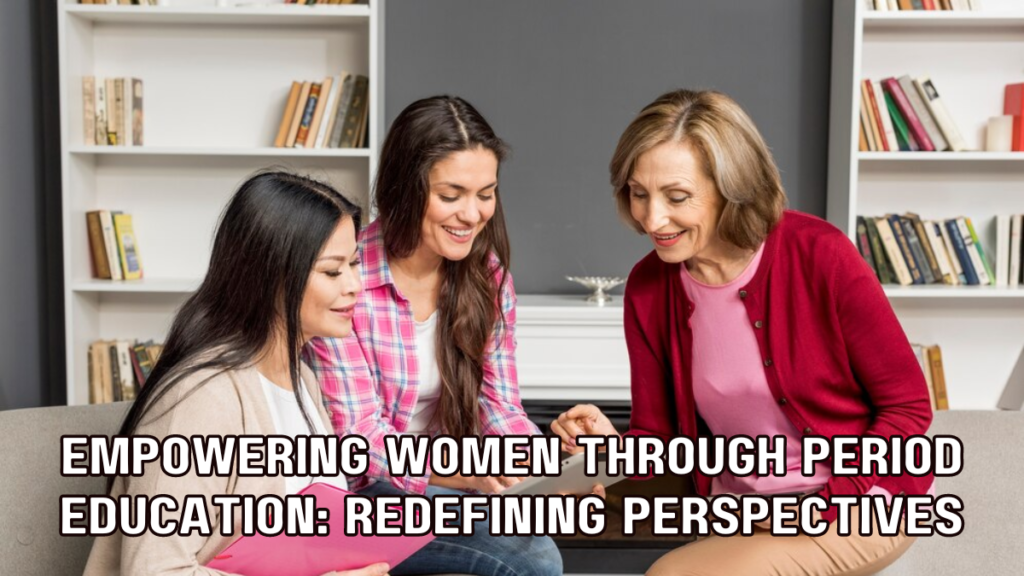Introduction:
Periods. Menstruation. Aunt Flo. The Crimson Tide. However, you refer to it, menstruation is a fundamental aspect of being a woman. Yet, for something so universal, it remains shrouded in stigma and misinformation. Empowering women through period education is not just about understanding the biology behind it; it’s about challenging societal taboos and redefining perspectives. In this blog, we’ll explore why period education is crucial for women’s empowerment and how it can foster a more inclusive and understanding society.
Breaking the Silence:

For centuries, menstruation has been cloaked in silence and shame. Cultural taboos have perpetuated myths and misconceptions, leading to feelings of embarrassment and secrecy surrounding periods. By breaking the silence and initiating open discussions about menstruation, we can dismantle these barriers and create a more supportive environment for women and girls.
Education as Empowerment:

Period education goes beyond simply explaining the biological processes involved. It encompasses a range of topics, including menstrual hygiene, menstrual health, and the social and emotional aspects of menstruation. By providing comprehensive education, we empower women with the knowledge and resources they need to manage their periods confidently and hygienically
Challenging Stigma:
One of the most significant barriers to period education is the stigma associated with menstruation. From cultural taboos to religious beliefs, menstruation is often viewed as dirty or shameful. By challenging these stigmas and promoting open dialogue, we can create a more inclusive and accepting society where menstruation is seen as a natural and normal bodily function
Promoting Menstrual Equity:
Period education is also a matter of equity. In many parts of the world, access to menstrual products and adequate sanitation facilities is limited, leading to missed school and work opportunities for women and girls. By advocating for menstrual equity, we can ensure that all individuals have access to the resources they need to manage their periods with dignity and confidence
Redefining Perspectives:
Ultimately, period education is about redefining perspectives. It’s about shifting the narrative from one of shame and secrecy to one of openness and empowerment. By educating both women and men about menstruation, we can foster a culture of understanding and support where menstruation is celebrated as a natural and essential part of womanhood.
Conclusion:
Empowering women through period education is not just about providing information; it’s about challenging stigma, promoting equity, and redefining perspectives. By breaking the silence surrounding menstruation and fostering open dialogue, we can create a world where women and girls can manage their periods confidently and without shame. Together, let’s empower women through education and create a more inclusive and understanding society for all.

